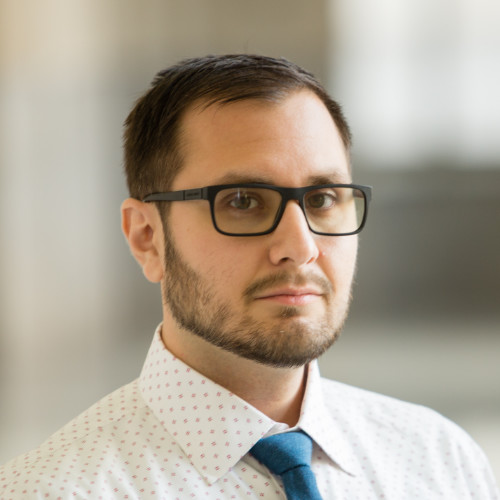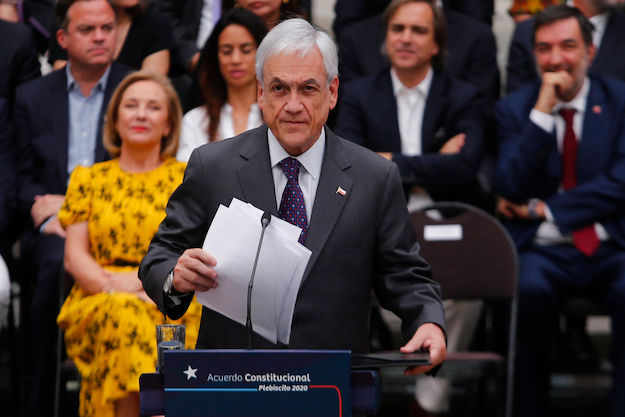After 15 years, the center-left Broad Front’s hold on power in Uruguay will end when Luis Alberto Lacalle Pou of the National Party takes office on March 1. Lacalle Pou’s presidency is the latest example of voters in Latin America turning to a conservative leader to open up their economies, tackle yawning fiscal deficits, combat crime, improve the education system and realign their country’s foreign policy toward the U.S.
However, Lacalle Pou differs from other conservative leaders in Latin America, like President Jair Bolsonaro of Brazil or President Nayib Bukele of El Salvador, as he remains committed to centrist politics and wants to reduce polarization.
Still, not all will be smooth sailing for Lacalle Pou. Uruguay’s traditionally stable party system has fragmented, especially on the right. The new president narrowly secured his election in October by forging a clunky “multicolor coalition” that includes the historic and centrist Colorado Party as well as the new populist Open Forum party. The challenge for Lacalle Pou is whether this diverse coalition can survive as policy disagreements on sensitive issues become apparent.
However, Lacalle Pou hopes he’ll be able to find some consensus within his coalition on three key issues: fiscal consolidation, tackling rising crime and turning the country into a magnet for migrants.
Making it easier to do business
According to the IMF, “Uruguay is in an enviable position in many respects,” as it stands out as one of the region’s most stable economies. Indeed, Lacalle Pou inherits a country with an investment grade rating, sizable foreign exchange reserves, and a balanced external debt profile with only 14% of debt maturities being short-term. For comparison, 24% of Argentina’s debt in 2018 was short-term.
Despite these advantages, it’s increasingly expensive to do business in Uruguay—posing a problem for Lacalle Pou’s government. The outgoing government’s spending and expanded entitlement programs—specifically pensions—raised the fiscal deficit, which grew to 4.6% of GDP in 2019. To cover its expenses, the government raised taxes and utility rates at state-owned enterprises. As a result, Uruguayans pay the highest prices in the Southern Cone for energy and gasoline. For an export-dependent economy, these high input costs are pricing producers out of markets, and they explain the angst of the rural-led protest movement, Only One Uruguay, who are demanding a reduction in the size of the state.
Lacalle Pou owes his victory in part to the agricultural sector, and to satisfy their demands, he plans to focus on curtailing spending, instead of raising taxes to tackle the deficit.
The incoming president has promised to reduce state employment and make state spending more efficient, which could save $900 million. Lacalle Pou also plans to liberalize Uruguay’s energy sector in order to increase competition and reduce energy prices. That will require ending the monopoly held by state-owned energy-firm ANCAP. This proved difficult for the Broad Front in 2003, when unions defeated an effort to liberalize the sector in a referendum.
Labor is another area where the government may seek to reduce costs. Workers have seen wage increases every year since the Broad Front took power, but there has also been a significant increase in unemployment, with the youth being hit particularly hard. Addressing the wage and employment trade-off will be a sensitive issue for the government, as doing so promises to place the government on a collision course with Uruguay’s powerful unions.
Reducing crime
Uruguay has become the fourth most violent country in South America, and Lacalle Pou will enter office with high expectations from concerned middle class voters. Within his party, hardliners have made combating crime their siren song, and Lacalle Pou named one of them, former National Party presidential candidate and Senator Jorge Larrañaga, as the incoming interior minister. Larrañaga has a more mano dura approach towards crime and led the charge on two referendums on the issue: In 2014, he promoted a change to the constitution to reduce the age of criminal responsibility to 16, which failed to pass. Last year, voters narrowly rejected another constitutional reform that would have increased criminal penalties and created a national guard. He recently told journalists that “authority is not negotiated, it is exercised.”
A more hardline stance towards crime is something that unites Lacalle Pou’s coalition, albeit with a few differences regarding sentencing and the role of the armed forces. The new president likely sees how a harder line on crime has in recent years been associated with lower crime rates and higher presidential popularity in neighboring Argentina and Brazil. A reduction in crime may be a way to retain support, even if other areas of governance do not meaningfully improve. Still, an overzealous response could jeopardize Uruguay’s positive reputation on human rights.
Attracting foreigners – and their money
Another priority for the government is attracting migrants – particularly rich ones.
Uruguay ”has the possibility of becoming a destination, not only for our Mercosur neighbors, but for the world,” Lacalle Pou stated. Increasing immigration is symbolically important for a country whose identity is tied to being a nation of immigrants, and Lacalle Pou’s objective is to attract upwards of 100,000 mostly high-skilled and well-heeled foreigners. Although the details are not yet clear, the government intends to ease onerous residency requirements for applicants who invest $1.8 million and remain in the country for six months.
There is already a steady stream of high profile Argentines moving to Uruguay. Articles in the Argentine press laud Uruguay’s tax system and incentives for foreign investors. A particular sector where Uruguay is well-placed to take advantage is in services. Argentina’s recent decision to suspend a “Knowledge Economy” law places Argentina’s tech sector in limbo. That could play to Uruguay’s advantage, if it can address its outstanding competitiveness challenges.
Still, Lacalle Pou’s plan to attract foreigners has faced criticism at home and from abroad. The most visceral criticism came from former President José Mujica, who argued that “instead of bringing 100,000 Argentines…let’s worry about our own people investing here.” Argentine President Alberto Fernández warned that Lacalle Pou’s plan of easing financial regulations could turn Uruguay into a “tax haven.”
Next steps
Uruguay faces a number of pending fiscal, economic and social problems that the incoming government has promised to address. Lacalle Pou is set to get to work quickly. He has proposed an omnibus bill known as the Law of Urgent Consideration, which aims to pass a bevy of reforms before the economic or social situation worsens and infighting paralyzes his coalition.
While Uruguay’s history with coalition governments is not a positive one, the advantage Lacalle Pou has is that polarization in the country is low. Although there will be serious disagreements, they should not lead to the debilitatingly divisive politics seen in other parts of the region, or even the world.
—
Saldías is a researcher for the Wilson Center Latin American Program’s Argentina Project and a PhD Candidate at the University of Toronto.









